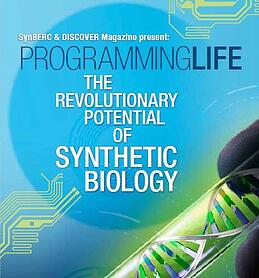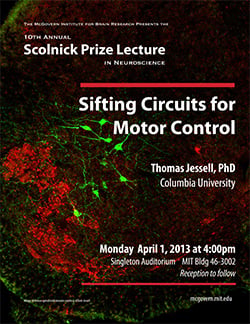Though researchers have known for some time that eating a Mediterranean diet is good for the heart and can even help fight cancer, nobody has known exactly how it affects our bodies so positively. Now at Ohio State University, a new study shows how one compound in particular assists in the natural death of cancer cells.
Tags: 2014, Midwest, 2013, Ohio State University, BioResearch Product Faire Event, Research, NIH, Columbus, OH, RNA, OhStu
By this point, most Americans are familiar with the gelatinous yellow pill harked by many as a critically necessary supplement. Fish oil pills, packed with omega-3 fatty acids, are sold in many grocery stores and can be found in even more households nationwide. At Michigan State University, bioresearchers are delving deeper into the effects of fish oil on the body. What they have found may sound a little surprising at first: fish oil can increase immunity in people with certain health conditions.
Tags: Michigan State University, 2014, Midwest, 2013, fish oil, immunity, Michigan, BioResearch Product Faire Event, MI, Research, Front Line event, East Lansing, MSU, laboratory suppliers
The NIH has just announced $5.3M in two new awards through the Autism Centers of Excellence (ACE) program to support autism research studies led by two University of California investigative teams, at UCLA and the UC Davis Medical Center MIND Institute. ACE funding is earmarked for large, multi-disciplinary studies into the origins of autism spectrum neurological disorders and avenues for their treatment. In the case of the two latest awardees, one is a clinical behavioral study and one is a study of genetic variants. The $5.3M is initial one-year funding, with extensions of up to five years. The ACE program includes both centers and networks. Centers are made up of multiple investigators at one site working together on a specific research problem; networks include investigative teams from different sites engaged in a focused study. Both UCLA and UC Davis are ACE centers and will lead the current research projects, though in collaboration with colleagues at other research institutions, namely Harvard, UW, Vanderbilt, Emory, Johns Hopkins, and Yale. As with all ACE research, data and findings are collected centrally by the NIH to maximize their availability to the larger research community.
Tags: 2014, CA, 2013, Southwest, Los Angeles, Autism, LAVS, UCDMC, BioResearch Product Faire Event, Funding, UCLA, Genetics, Research, Sacramento, Davis, NIH funding, UC Los Angeles, UC Davis, Biotechnology Vendor Showcase Event
 Synthetic biology is the application of engineering principles to altering components of biological systems, like genes and cells, towards creating new and revised living things (watch the video below for an introduction). It's arguably the most radical, cutting-edge laboratory science field today, and one that calls on its scientists to grapple with ethics as well as biotechnology. At the forefront of this life science revolution is the University of California Berkeley-led consortium SynBERC: the Synthetic Biology Engineering Research Center, with partner colleagues at UCSF, Stanford, MIT, and Harvard. Just this week, principal synbio investigators from these institutions came together with industry scientists and ethicists for a symposium on the UCB campus titled Programming Life: the revolutionary potential of synthetic biology, co-sponsored by SynBERC and Discover Magazine. Whether we are going to continue down the road of reengineering life was not the question so much as how we will go about that delicate task and what the implications and promises are of such a bold project.
Synthetic biology is the application of engineering principles to altering components of biological systems, like genes and cells, towards creating new and revised living things (watch the video below for an introduction). It's arguably the most radical, cutting-edge laboratory science field today, and one that calls on its scientists to grapple with ethics as well as biotechnology. At the forefront of this life science revolution is the University of California Berkeley-led consortium SynBERC: the Synthetic Biology Engineering Research Center, with partner colleagues at UCSF, Stanford, MIT, and Harvard. Just this week, principal synbio investigators from these institutions came together with industry scientists and ethicists for a symposium on the UCB campus titled Programming Life: the revolutionary potential of synthetic biology, co-sponsored by SynBERC and Discover Magazine. Whether we are going to continue down the road of reengineering life was not the question so much as how we will go about that delicate task and what the implications and promises are of such a bold project.
Tags: 2014, CA, 2013, University of California Berkeley, biofuels, synthetic biology, Southwest, California, University of California, genetic engineering, Berkeley, BioResearch Product Faire Event, Research, Berkeley Labs, UCBerk, UC Berkley
Researchers from Ohio State University have pinpointed a tiny piece of RNA that plays a large role in embryonic tissue formation. Understanding such small, often overlooked pieces can help illuminate the biological processes of the earliest stages of life.
Tags: 2014, Midwest, 2013, Ohio State University, Ohio, Tissue Development, BioResearch Product Faire Event, Research, NIH, Columbus, OH, RNA, NSF, OhStu, OSU
Americans are making, drinking, and exporting more wine than ever before. A hobby for some and serious business for others, winemaking consumes a whole lot of grapes every year (in the neighborhood of 4 million tons in the US alone), and that number is growing. But as with any type of industry, there's a certain industrial waste to be managed. In the case of winemaking, it's called pomace, and up to now vintners have been paying to have the pulpy mass hauled away. Now food science researchers at Oregon State University in Corvallis have come up with a process to make pomace into useful products, from biodegradable fiberboard to a nutritional foodstuff, which is the kind of earth-friendly, business-savvy research from which OSU is likely to profit nicely when the technology is commercialized internationally.
Tags: 2014, 2013, Oregon State University, food science, Wine Grape Pulp, Northwest, Oregon, BioResearch Product Faire Event, Research, Front Line event, OR, Corvallis, Corvalis, ORSTU, Pomace
 Dr. Thomas Jessell is a developmental neurobiologist at Columbia University Medical Center and the latest recipient of the Scolnick Prize in Neuroscience, which includes a $100,000 award. In the Jessell Lab in the Hammer Health Sciences Building, researchers study the vertebrate central nervous system to understand how neurons become encoded at the embryonic level, particularly in the spinal cord. The Scolnick Prize singles out Jessell's work for identifying signaling molecules and transcriptional code that establish a linkage between functional circuitry and motor behavior. Also a member of Columbia's Motor Neuron Center, which is dedicated to the study of motor neuron diseases like ALS, Dr. Jessell is a faculty member in the Department of Biochemistry and Molecular Biophysics, a Howard Hughes Medical Institute investigator, and part of the larger Columbia Neuroscience interdisciplinary research community. He will travel to Boston in April to accept the prize and deliver a lecture (see image at right). The Scolnick Prize is given out by the McGovern Institute for Brain Research at MIT. According to McGovern chairman Robert Desimone, from a recent CUMC press release:
Dr. Thomas Jessell is a developmental neurobiologist at Columbia University Medical Center and the latest recipient of the Scolnick Prize in Neuroscience, which includes a $100,000 award. In the Jessell Lab in the Hammer Health Sciences Building, researchers study the vertebrate central nervous system to understand how neurons become encoded at the embryonic level, particularly in the spinal cord. The Scolnick Prize singles out Jessell's work for identifying signaling molecules and transcriptional code that establish a linkage between functional circuitry and motor behavior. Also a member of Columbia's Motor Neuron Center, which is dedicated to the study of motor neuron diseases like ALS, Dr. Jessell is a faculty member in the Department of Biochemistry and Molecular Biophysics, a Howard Hughes Medical Institute investigator, and part of the larger Columbia Neuroscience interdisciplinary research community. He will travel to Boston in April to accept the prize and deliver a lecture (see image at right). The Scolnick Prize is given out by the McGovern Institute for Brain Research at MIT. According to McGovern chairman Robert Desimone, from a recent CUMC press release:
Tags: 2014, 2013, Northeast, Scolnick Prize, New York, Columbia University, Neuroscience, Columbia, BioResearch Product Faire Event, Research, Stem Cell, New York City, Columbia University Medical Center, Northeast Region, lab supplier, NYColumbia University
Tags: 2014, CA, University of California San Diego, 2013, Southwest, California, University of California, Autism, Neuroscience, San Diego, SDVS, UCSD, UC San Diego, Research, La Jolla, Biotechnology Vendor Showcase, Southwest Region
Longwood Medical Area is known as one of the most prestigious educational, medical and research areas in the United States. Located along Longwood Avenue in Boston, Massachusetts, Longwood Medical Area (LMA) is made up of teaching hospitals, medical facilities, and non-medical facilities; as well as some top educational institutes, such as Harvard Medical School.
Tags: 2014, Harvard University, 2013, Northeast, Longwood Medical Center, Boston, BioResearch Product Faire Event, Research, MA, Harvard, NIH funding
While today’s advancements in biotechnology suggest that there’s nothing we can’t artificially produce, sometimes there’s just no substitute for nature’s own recipes. At least, that’s the philosophy behind the University of Minnesota’s Schmidt-Dannert Lab, whose aim is to harness compounds created in natural organisms like plants and fungi that cannot be produced by chemical means. Many of these compounds have beneficial properties that can be used in further research and drug production.
For example, take chloroplasts, the organelles that perform photosynthesis inside plant cells. They provide energy to plant cells when exposed to light. Animal cells don’t have chloroplasts, which means they’re missing out on a valuable energy source. The Schmidt-Dannert Lab, led by University of Minnesota professor Claudia Schmidt-Dannert, is working toward is creating solar-powered animal cells that are more productive and produce different sorts of organic materials.
Tags: 2014, Midwest, 2013, University of Minnesota, University of Minnesota St. Paul, Fungi, Minnesota, University of Minnesota Twin Cities, BioResearch Product Faire Event, Funding, Biotechnology, Research, researchers, Minneapolis, lab, MN, Front Line, St. Paul, UMinn, UMinnSP, U-M, fight cancer

